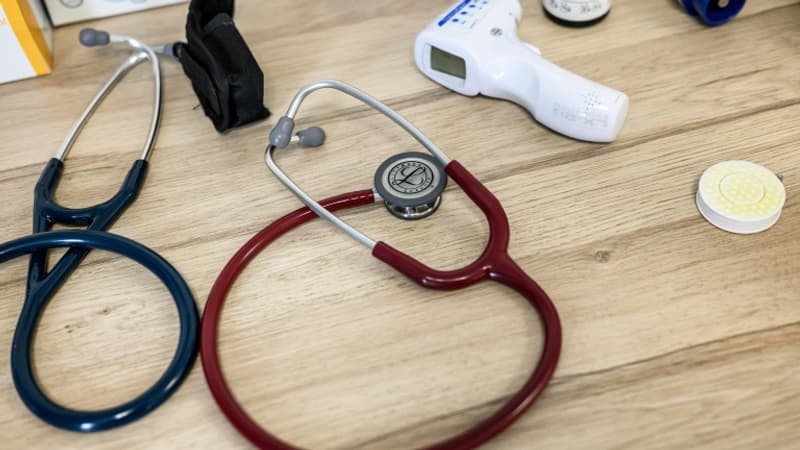You have to take several turns through the long corridors of the Georges Pompidou European Hospital, in the south of Paris, to find the office of Professor Xavier Jouven. The cardiologist, white coat and notebook in hand, has been studying sudden death for more than 30 years.
Sudden death is sudden death after an increase in heart rate and affects more than 40,000 people in France each year. “Someone falls, becomes unconscious, and death occurs at the time the symptoms start,” sums up the cardiologist. The risk factors are numerous such as diabetes, cardiovascular diseases, smoking, but others are still unknown.
And to face it, artificial intelligence could be a very valuable help.
Founder of the sudden death expertise center, he launched in May 2011, with his research teams, which mixes engineers and doctors, the registry that lists all the victims of sudden death in Paris and its suburbs. This accumulation of data aims to improve the prediction of sudden death by searching for rarer factors using artificial intelligence (AI).
In short, the final objective is to “launch a screening campaign, such as that for breast or colon cancer, where each person identified as at risk is invited to consult”, Xavier Jouven advances. We are speaking here of personalized “prediction”, at a time when medicine deals with personalized “prevention”.
He collected data They come from the National Health Insurance Fund (CNAM). “We asked the CNAM to entrust us with all the data on the victims of cardiac arrest: everything they had taken as a drug, their tests, their diagnoses during the 10 years prior to the sudden death,” the cardiologist continues.
To this must be added the data from the firefighters and the Samu that report sudden death cases and those from the resuscitation services. In total, the teams study the data of 350,000 people, which brings together 20 million medical diagnoses.
AI to identify rare factors
“Thus, we create a kind of digital shadow for each individual”, continues Xavier Jouven. All this data is anonymized and it took them more than two and a half years to obtain it and complete the procedures. with the National Commission for Informatics and Liberties (CNIL).
All these data are interesting for research since previously doctors had a reduced view of people at risk. “There we will be able to extend the risk factors to non-cardiovascular factors and find rarer origins,” he specifies.
To analyze this mountain of data, it first had to be sorted, which took the research teams just over 3 years. Establishing structured data is essential to make it readable by artificial intelligence. Then, to analyze them in detail, the algorithm intervenes. “The mission of the latter is to treat them, not make assumptions and identify for itself the factors that could be predictors of the occurrence of sudden death”, underlines the professor.
microsignals
The team uses intelligence to accomplish two goals. First, to create a “personalized risk equation,” which translates to what a person is at increased risk of sudden death. Thus, a patient will be able to know precisely if he is at risk of sudden death based on the factors he presents and those found by the algorithm.
The second advantage of using artificial intelligence is that it is able to identify microsignals “that doctors cannot see, especially in young victims.” The database also houses non-cardiovascular information because “doctors do not know how to identify the vast majority of future victims”, specifies Xavier Jouven.
At this stage, artificial intelligence would be able to identify, in the general population, people with more than 90% risk of being a victim of sudden death during the year. But to make sure this model works, the team will launch this year and for a year, an observational study in which artificial intelligence will run on this data from Health insurance and it will identify high-risk people to verify if these predictions are valid. If that works, the team will launch an intervention study.
“For the moment, the results are very promising. France would be the first country in the world to make personalized predictions”, reveals Xavier Jouven. The doctor would thus have the personalized risk profile of his patient: his risk factor number 1, then number 2, etc.
The cardiologist is enthusiastic about the promising results provided by artificial intelligence and digital health data, but wants to remain lucid: “AI, if you don’t control it, can make blunders.”
Source: BFM TV


